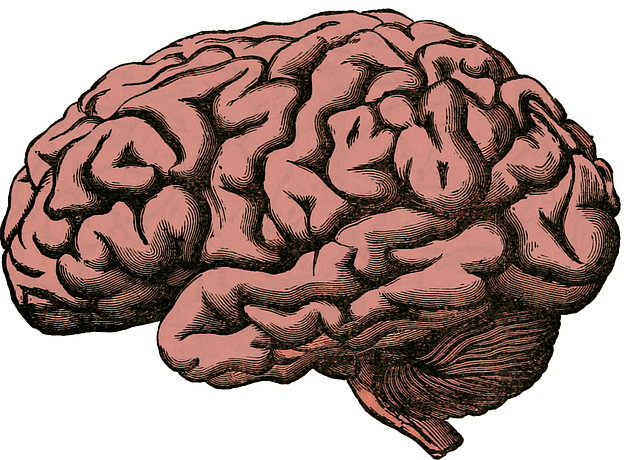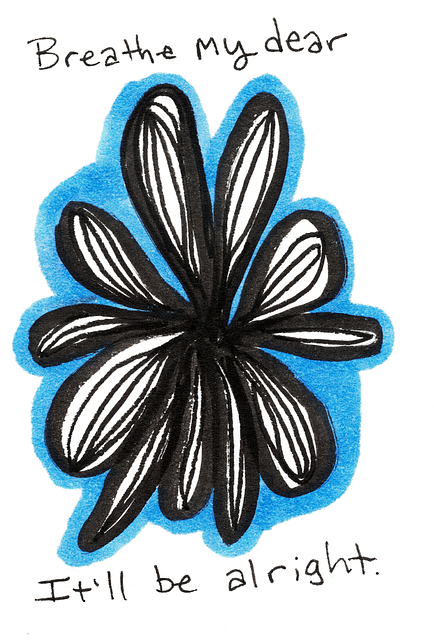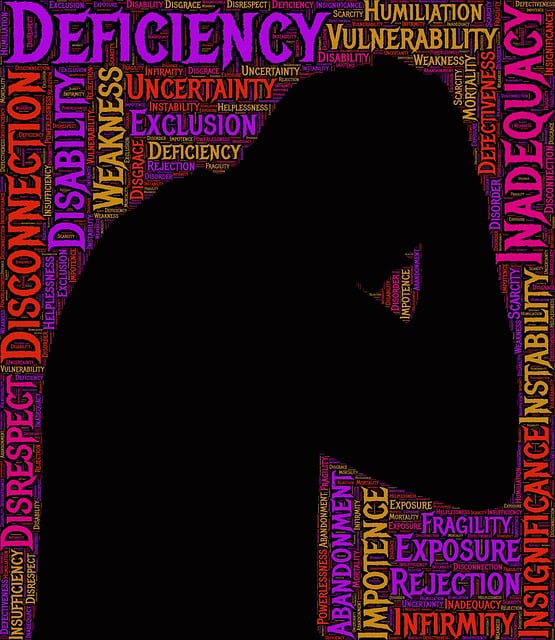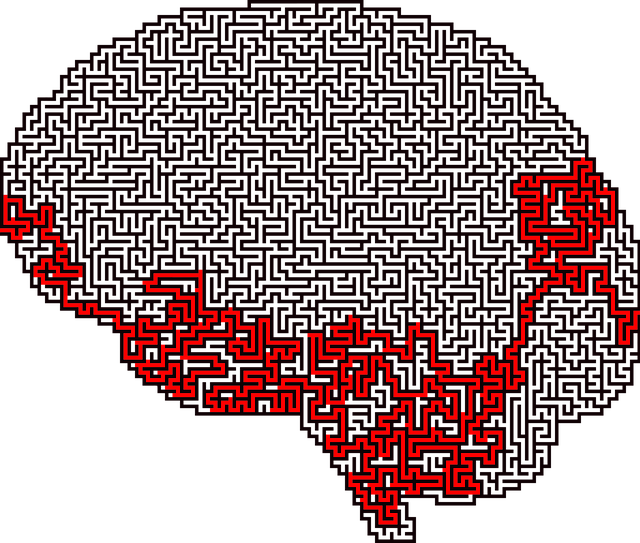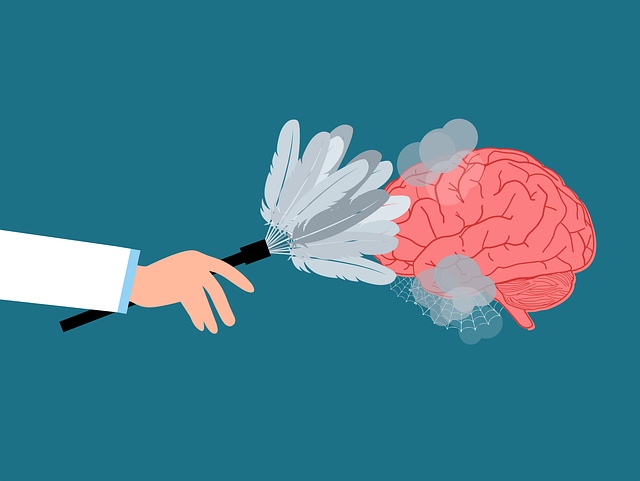Social skills training is a crucial component of Highlands Ranch Grief Counseling Therapy, focusing on coping strategies, communication, and empathy for individuals with anxiety, depression, or trauma. This program enhances mental wellness by improving social interactions, fostering meaningful relationships, and reducing stigma around mental health. Through evidence-based techniques, personalized coaching, and accessible podcasts, participants gain confidence in navigating social situations, leading to improved emotional well-being and a sense of belonging. Case studies show significant benefits, making this approach an effective, inclusive tool for mental health care in Highlands Ranch and beyond.
Social skills training is a powerful tool for managing mental health conditions, fostering connections, and enhancing overall well-being. This comprehensive guide explores the intricate link between social abilities and mental health, delving into specific challenges faced by individuals with various conditions. We highlight the role of grief counseling in building social competence and offer practical strategies from therapy sessions. Through a case study from Highlands Ranch, we demonstrate the long-term benefits of social skills training, emphasizing its potential to revolutionize mental health support.
- Understanding the Link Between Social Skills and Mental Health
- Identifying Challenges in Social Interaction for Individuals with Mental Health Conditions
- The Role of Grief Counseling in Building Social Competence
- Practical Strategies for Enhancing Social Skills Through Therapy
- Long-Term Benefits of Social Skills Training: A Case Study from Highlands Ranch
Understanding the Link Between Social Skills and Mental Health

Social skills training is an essential component of mental health care, as it helps individuals with conditions like anxiety, depression, or trauma to navigate social interactions more effectively. The link between social skills and mental health is profound; lacking robust social skills can exacerbate existing mental health issues and hinder recovery. This is particularly relevant in communities like Highlands Ranch Grief Counseling Therapy, where supporting clients’ emotional well-being often involves helping them build and strengthen interpersonal connections.
Mental Health Education Programs Design focus on teaching individuals coping strategies for social situations, improving communication, and fostering empathy. These programs are designed to empower participants with the tools needed to engage in meaningful relationships, thereby enhancing their overall mental wellness. Additionally, Mental Wellness Coaching Programs Development offers personalized guidance, ensuring that each individual receives tailored support. Even production of a Mental Wellness Podcast Series can provide accessible learning opportunities, offering insights and practical advice for improving social skills while increasing awareness about mental health.
Identifying Challenges in Social Interaction for Individuals with Mental Health Conditions

Individuals with mental health conditions often face unique challenges when it comes to social interactions. This can be attributed to a variety of factors including symptoms of their condition, such as anxiety or depression, and any resulting changes in thinking patterns, emotional regulation, or behaviors. For instance, someone struggling with high-functioning depression might find themselves adept at concealing their distress, leading to misunderstandings about their social preferences or availability. Similarly, individuals navigating grief may experience difficulties in connecting with others due to their intense emotions or a sense of isolation they feel despite being surrounded by people.
Highlands Ranch Grief Counseling Therapy can play a pivotal role in addressing these challenges. Through targeted interventions and strategies tailored to individual needs, therapy helps clients identify and overcome barriers in social situations. This includes fostering cultural sensitivity in mental healthcare practice, ensuring diverse perspectives are considered to better serve the unique social needs of every client. Additionally, public awareness campaigns development can help destigmatize mental health struggles, encouraging open conversations about mood management techniques that facilitate healthier interactions and overall well-being.
The Role of Grief Counseling in Building Social Competence

Grief counseling plays a pivotal role in building social competence, especially for individuals managing mental health conditions. Highlands Ranch Grief Counseling Therapy offers a safe space for processing emotions and navigating the complexities of loss, which can significantly enhance one’s ability to engage socially. Through guided discussions and coping strategies, clients learn to express their feelings constructively, fostering healthier interactions with peers and loved ones.
Integrating grief counseling into social skills training empowers individuals to overcome social barriers associated with trauma or bereavement. By addressing underlying emotional wounds, these therapeutic interventions facilitate better communication, empathy, and relationship-building. Moreover, incorporating burnout prevention strategies for healthcare providers, as well as developing public awareness campaigns focused on mental health, can create a supportive network that encourages social participation and overall well-being, ultimately enriching the lives of those seeking support in Highlands Ranch and beyond.
Practical Strategies for Enhancing Social Skills Through Therapy

Social skills training is a vital component of mental health treatment, offering practical strategies to enhance communication and interaction. For individuals seeking Highlands Ranch Grief Counseling Therapy, these sessions can be transformative. Therapists utilize evidence-based techniques tailored to each client’s unique needs, focusing on areas such as active listening, nonverbal communication, and empathy. By practicing these skills in a safe therapeutic environment, clients gain confidence in their ability to connect with others, which is crucial for improving mental wellness.
Through role-playing scenarios and group discussions, individuals learn to navigate social situations effectively. This approach is especially beneficial for those who struggle with anxiety or depression, as it provides a structured framework for building social connections. Moreover, healthcare provider cultural competency training can be integrated into these sessions, ensuring that clients from diverse backgrounds feel understood and supported. Effective risk assessment for mental health professionals guides therapists in creating personalized goals, fostering a sense of belonging and reducing social isolation, which are key factors in the healing process.
Long-Term Benefits of Social Skills Training: A Case Study from Highlands Ranch

Social Skills Training (SST) offers long-term benefits for individuals with mental health conditions, as evidenced by a case study in Highlands Ranch Grief Counseling Therapy. Participants in this program experienced significant improvements not only in their social interactions but also in their overall emotional well-being. The study highlights that SST can help break down barriers and foster a sense of belonging, crucial aspects in promoting mental health awareness and resilience.
In terms of cultural sensitivity in mental healthcare practice, SST has proven effective across diverse communities. By teaching individuals practical emotional well-being promotion techniques, these programs empower them to navigate social situations with confidence. This approach underscores the importance of considering both individual needs and broader cultural contexts, ensuring that mental health interventions are inclusive and accessible for all.
Social skills training, as demonstrated through grief counseling and various therapeutic strategies, plays a pivotal role in enhancing mental health outcomes. By addressing specific challenges in social interaction, individuals with mental health conditions can improve their overall well-being. The case study from Highlands Ranch highlights the long-term benefits of such programs, emphasizing the importance of integrating these training methods into comprehensive mental health care. Incorporating practical strategies tailored to individual needs can lead to more fulfilling social lives and improved mental resilience.
